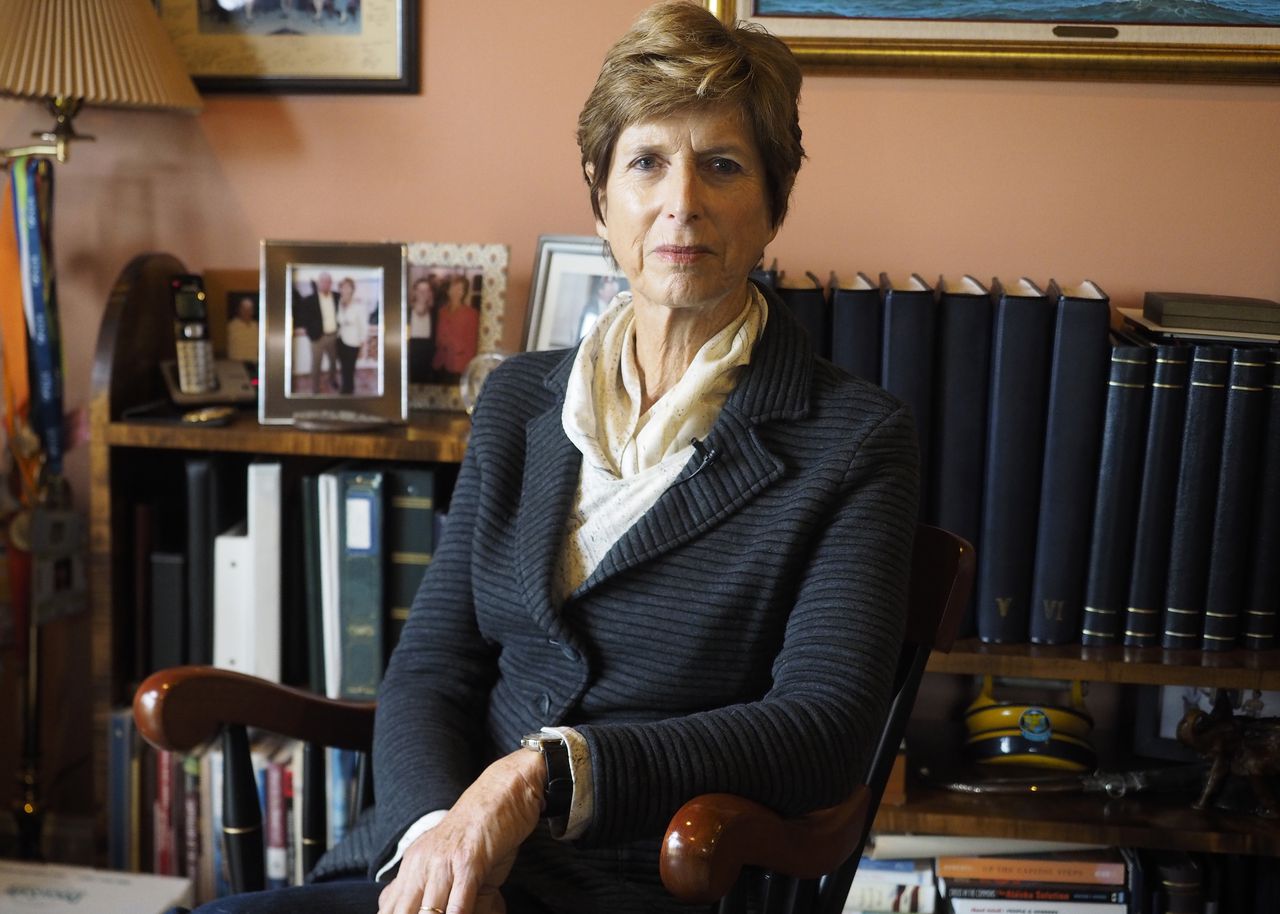By Christine Todd Whitman
NJ.com
March 29, 2020
Around the country, the American public is faced with the reality that yet again, a woman will not achieve the presidency this election cycle. When examining why a woman has yet to obtain the highest office of the land, we need to acknowledge the role that money plays in politics. Women are hampered in the political sphere because they have access to fewer financial resources than their male counterparts. But women’s greatest strength is that we are comfortable not doing it all on our own, and I am hopeful that collaboration will allow a woman candidate to break the glass ceiling and achieve the presidency.
I’ve experienced first-hand the challenges of campaign fundraising as a woman. In my 1990 campaign for the United States Senate, I was running against U.S. Sen. Bill Bradley, a former NBA basketball player who outspent me on the campaign trail 12:1. The Republican Senatorial Campaign Committee promised me $300,000 to help in the last few days before the election, which I hoped to spend on ads. But less than 10 days before the election, the committee pulled their promised funding.
They told my campaign that we were going to lose and decided to allocate the funding to other candidates they deemed were more likely to win, all of whom were men. But my campaign ended up doing the best of all the challenger candidates that election cycle, coming within less than 60,000 votes of my opponent. The committee’s decision that I was less likely to win than the other male candidates was proven false. The committee withdrew promised support at a critical moment because of a biased assessment of who was most likely to mount a successful challenge to an incumbent.
The battle I faced with fundraising is one shared by all women in politics. There are many reasons for the gender divide in political fundraising. A 2016 report by the Center for Responsive Politics found that women candidates face a disparity in donations from PACs, individuals, and major parties. Republican women face additional challenges and increased opposition funding. One reason for the gender disparity in political fundraising may be that not enough women have risen to the top levels of corporations, and thus are unable to direct the political giving of major companies.
Women candidates also raise money in smaller amounts, according to a 2014 report from the Center for American Women and Politics (CAWP), so they may have to spend more time fundraising to remain financially competitive. CAWP also notes that women may need to spend more on advertising than their male counterparts to address gender stereotypes.
Not only do women candidates face barriers in fundraising, but they also suffer from the pay gap. In 2018, full-time women employees made 82 cents for every dollar made by a male employee. This pay gap leads to less discretionary income for women, which in turn impacts a woman’s ability to contribute to or launch a political campaign while remaining financially secure.
To achieve political gender equality, women need to develop new strategies to raise money for their campaigns. This is where women’s talent for collaboration can make all the difference. In my campaign for governor of New Jersey, I recognized that fundraising was not my strength – but it is the strong suit of other women and men. I empowered those individuals, and together we were able to secure the resources we needed to win. Women candidates must find the people who can do that work and deploy them to build the financial backbone of the campaign.
Even when women mount successful, financially viable campaigns, our success is often discounted. After I won the primary for governor in 1993, my team and I met with the other candidates to build a coalition for the general election. One candidate, who shall remain nameless, spent the entire meeting telling us how we should have run our campaign. We looked at each other and thought, “Didn’t we just win this race?”
The dismissive attitudes that women presidential candidates face demonstrate that more needs to change than merely campaign fundraising. Even the most financially sound campaign can still fall short due to the sexism that still runs rampant in American politics. As a society, we need to acknowledge that even after all the progress that has been made as women consistently demonstrate their competency, the public at large still does not react well to strong women.
My only hope is that as the pay gap narrows, as more women continue to rise in the ranks to control corporate dollars, and as more female candidates are successful at local levels, the combination of these changes will begin to shift society’s general attitude. And as those shifts occur, we might finally realize the dream of having America’s first woman president

